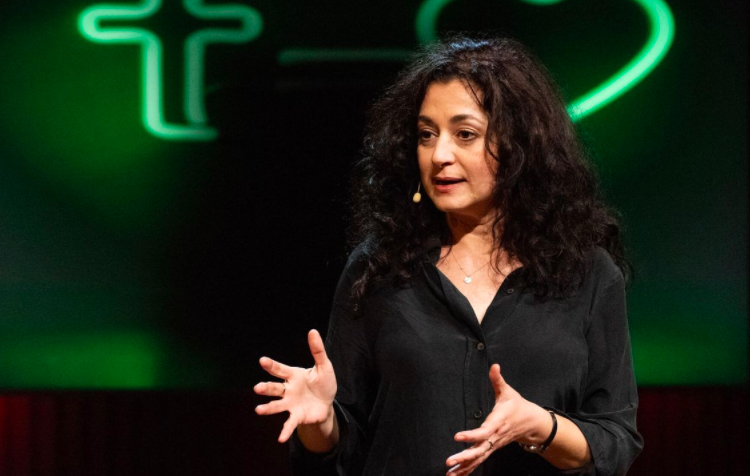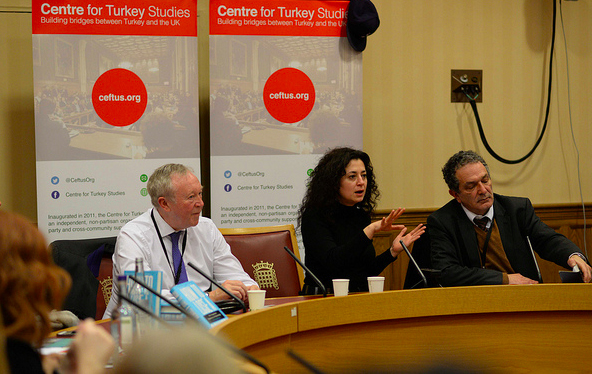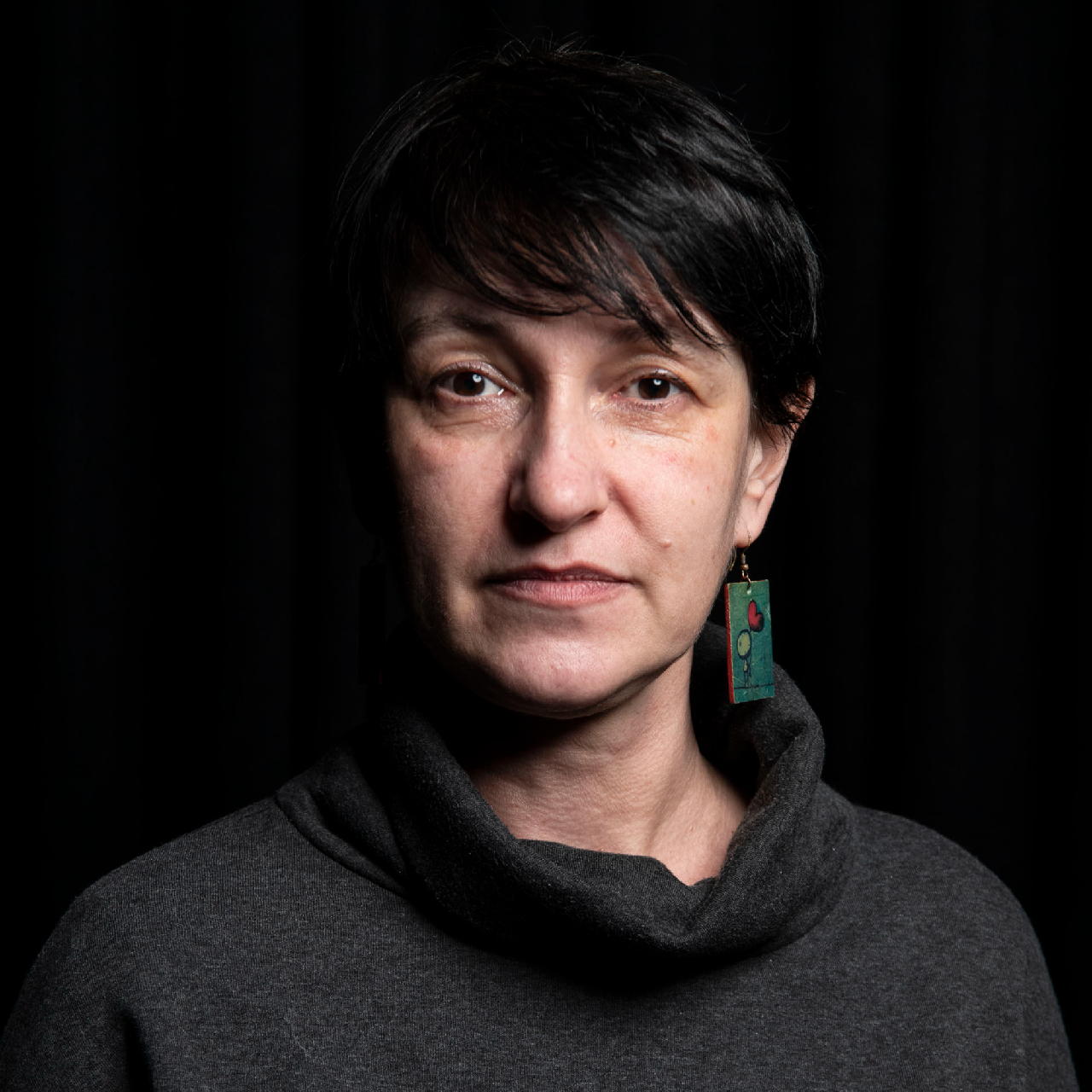Described as a “marvellously punk writer” who “demands attention,” Ece Temelkuran is one of the most lauded and prominent thinkers in Europe today.
With 12 books to her name, she is a well known journalist and political commentator who gained international attention after being fired from her newspaper job in Turkey after writing critically about the government. Yet even today, she is considered one of the most influential Turkish journalists and she was twice named the most read political columnist in the country. She used to write for the Turkish newspapers Milliyet and Habertürk, and she has since published widely in The Guardian, Le Monde Diplomatique, The New York Times and other international publications.
Canadian writer Margaret Atwood described Temelkuran’s 2019 book, “How to Lose a Country: The 7 Steps from Democracy to Dictatorship,” as “essential.” In this book, Temelkuran explores the rise of right-wing populism, shows how it operates and warns about the first signs of declining democracy. Her latest book, published in 2021, “Together: 10 Choices for a Better Now”, presents a set of hopeful choices people can make to confront the problems the world faces today.
She is also a successful novelist whose works have appeared in many languages. Her novel “Women Who Blow On Knots,” as the first of her novels to be translated into English, received the 2017 Edinburgh International Book Festival First Book Award.
Under pressure from the government, Temelkuran decided to leave Turkey and today she lives and works in Croatia. Over zoom, K2.0 talked with Temelkuran about the democratic decline around the world, threats to freedom of speech and sources of hope.

Photo: Courtesy of Ece Temelkuran.
K2.0: I feel an obligation to start by mentioning the prominent Turkish journalist Sedef Kabaş who has been imprisoned for making offensive remarks about Turkish President Recep Tayyip Erdoğan. At the same time, in Europe, we are following the saga of Julian Assange. These cases are different, but both relate to media freedom, freedom of speech and the right to truth. Should we be concerned about the threats to these freedoms and rights?
Ece Temelkuran: It is beyond concerning because there have been waves of imprisonment, especially for Turkish journalists. And it has been going on for such a long time, with so many cases. Unfortunately, people — those who are politically active and engaged with freedom of expression issues — are still following the situation, but others, not that much. I think it is because, first of all, people are busy with surviving due to the economic crisis in Turkey at the moment. The living conditions are quite dire and people are developing a certain numbness to such cases.
Turkey has never been a heaven for freedom of expression, obviously. But especially the last ten years have been quite difficult. And it’s increasingly so. I think there is a developing normalization, so to speak, because these snap cases, one after another, have tired people down and reduced the interest. And the normalization of journalists being imprisoned didn’t happen in one day. It took more than ten years actually. And it became so many cases that nominally it became normal, so to speak. Unfortunately.
Somehow propaganda about Julian Assange is quite successful, so people did not perceive it as a freedom of expression issue but rather an espionage case.
As far as global terms, the same mistake is being committed in the Western world. Not many people think that being interested in Julian Assange, giving support, following that case, is important for the freedom of expression. Somehow propaganda about Julian Assange, I guess, is quite successful, so people did not perceive it as a freedom of expression issue but rather an espionage case.
It is quite heartbreaking because these trenches, so to speak, trenches in the struggle for freedom of democracy… once you lose one trench, it gets even worse, the attack goes deeper. I think people are not really aware that if that trench is lost, if that threshold is passed, the next step is easier for the authoritarian regimes, for the right-wing populists, and the next step, it is also much harder to protect the next threshold, so to speak.
I’m trying to tell people, especially Western audiences, about these right-wing populist regimes, authoritarian regimes. They can see from Turkey, when almost everything was lost in terms of freedom of expression, in terms of democratic means and so on. There was this massive uprising in Turkey in 2013, but until then, there was a gradual worsening of the situation. And societies have a habit of missing those steps when it’s happening to them.
That is so devastating to watch, especially after what we experienced in Turkey. It’s devastating to watch almost the same thing happening all over again in other countries, especially in Western countries which we like to see as the heaven for freedom of expression.
You warn about this in your book, but it does not seem that people are getting the message. You now live in the Balkans, which is looking at the EU as if it is the source of democracy and that the region will be saved with EU membership. But upcoming elections in several EU countries could precipitate huge problems. How do all these things affect the Balkans, including Turkey?
Yesterday I saw a tweet and actually I kind of commented on that and retweeted it. We are in an age where everything is normalized. A guy from Ukraine was writing in English asking the global audience and saying something like, obviously, there’s going to be a war, so can somebody tell me what to do when there is war, how to act like in daily life, what is the first thing we should do? And then a guy from an African country, was saying do this, build a neighborhood radio station and then buy this and so on. And then I thought, this is the 21st century and people on a global scale are sharing know-how about a war that might happen like tomorrow? And we are actually talking about it every day right now, which is so incredible to me.
So in the context of the EU, yeah, it is also natural that we are looking up to the EU because they have promised to the world, these countries, this entity, that they will always hold the moral high ground when it comes to democracy, freedom of expression, individual rights, and so on. So obviously, we are holding on to that promise. But then our hands are going to slip, so to speak, when we are trying to cling on to that promise.
We’ve seen it happen several times, especially since the invasion of Iraq. Now, as dramatically as then, we are seeing it with the refugee crisis. And again, we are seeing that there might be a war. This is so terrifying because when you look at the political crisis, the economic crisis and everything else, all these clusters of crises, you know that such crises are handled through wars in the capitalist system. So one gets really nervous. And we all are hesitant when it comes to trusting in the promised values of the European Union at this point. It’s pretty devastating because we are so used to putting the European Union as the north star of democratic values, standards and so on.
Are you afraid of the future EU and what it might bring to all of us?
You know what. Sometimes I think that due to global warming, habitable land is diminishing. It’s becoming smaller and smaller. At the same time, because of political crises, democratic land is also melting, so it’s becoming smaller and smaller. That’s why the global South is jumping in the water, jumping in the Mediterranean, trying to swim towards the North. But yeah, democratic spaces are also melting as fast as the glaciers in Siberia.
Elections in Turkey are near. Some people are saying there is a chance that a change of the government could happen. From a Bosnian perspective, it is not easy to change a society that has been shaped by powers that have controlled things for so long. If a change of leadership happens in Turkey, how long would it take society to transform itself into something different or better?
This is a very difficult question that I also have been thinking about. That’s why I wrote “Together.” Because, I do think that after a while, authoritarian regimes create a moral transformation in a society that goes deeper than any kind of political transformation, which is not easy to reverse. Therefore, we have to think of the scale of the transformation we need in the largest sense, in the moral sense as well.
Turkey is a very interesting country in that sense. We have this incredible skill of adaptation.
I have two answers. It will take decades and it will take five minutes. Because it also depends on this zeitgeist, so to speak, when political change happens, suddenly people can adapt to that and become their better selves. This can happen, and I know that it can because it did happen in 2013, during the Gezi uprising. Suddenly, people were their best selves. It happened very organically, rapidly, and without any agreement or negotiations. It just was there, there’s unity towards being our better selves, not only politically, but also morally.
So it might take five minutes. It might take decades. It depends on the power of the protocol change, as well. If the political change that we are hoping to see in 2023 is powerful enough to carry out a nationwide campaign to reconcile, to get rid of the corruption in the political system, it might happen.
Turkey is a very interesting country in that sense. We have this incredible skill of adaptation. It is encrypted in the genetic codes of the Turkish people. Hundreds of years of having to live on land that is like a bridge. Everybody passed. So there is this deep knowledge, I think, encrypted in all of us that this also will pass. And it’s always amazing to see how Turkish people can adapt themselves to the new situation, to the new political situation. So I’m hoping that the new and more democratic political state will be as easy to adapt as the previous one has been.
A state in which you and people like you could go back?
Yeah. But first, I have to tell you something. I don’t describe myself as an exile, and I’m not really interested in talking about that for several reasons. But yeah, Turkey is in that sense also interesting because since the founding of the country, the Turkish Republic, every 10 or 20 years people are leaving the country. So if you imagine Turkey in a different sense, the map of the country actually spans the entire globe because every generation lost some of its members every 20 years.
Mostly progressives were ruled out, obviously. But then it’s still there. The country is still there.

Photo: Courtesy of Ece Temelkuran.
You said that the island of democracy is shrinking. This is the case almost everywhere. Yet, there must be some way to resist. You belong to the group of people who are thinking and talking about different responses. What are the ways societies and not just individuals can resist?
We were talking about this the other day, Brian Eno, Roger Waters, Yanis Varoufakis and some others, and we came to an agreement that sometimes the crisis, at some point, transforms the unimaginable into the inevitable, and we are very close to that moment of crisis. And when the moment of the inevitable arrives, what people do in general in history is to pick up some of the ideas that have been lying around until then and they put them into practice.
I think we will have to think together more and produce more ideas because one of those ideas will be used when the crisis truly happens.
Recently philosopher Slavoj Žižek mentioned that this idea can be communism.
A few weeks ago I followed one global discussion, so to speak, on a website saying something like capitalism should be transformed and so on, and a very powerful right-wing media company suddenly jumped on it and said that Davos is bringing communism. So imagine how big the fear is, the fear of communism, that even Davos is blamed for being communist.
Well, yeah, it might be in a certain way. In a certain sense, it might be. I am now reading David Graeber and David Wengrow’s book “The Dawn of Everything: A New History of Humanity.” Communism is not a system that has not been tried before. I’m not talking about the Soviet Union or recent history, but before that, in prehistoric times, in ancient times and so on. So, yeah, it might be.
Thanks to the generational crisis as well there is also a generational renewal in the political thinking and political perspective.
It’s a generational matter as well, those who grew up during the Cold War are still alive. So the fear of socialism and communism is alive as well. Because suddenly, when Bernie Sanders came to the political stage, the word socialism was most looked up in Wikipedia in the United States. It is very interesting because this means that there is a massive memory erasure there, like everybody forgot about socialism thanks to the Cold War propaganda machine. And now they’re rediscovering that concept and it appears that to younger people this word doesn’t sound as scary as it did to the former generation.
So, thanks to the generational crisis as well there is also a generational renewal in the political thinking and political perspective, which I think is very important. And it will be very important. I’m giving like three to five years for this, especially in Europe, because all those kids who are politicizing now through the climate emergency are going to be politically active in three to five years. Then we’ll see something, I guess.
Do you see this possibility also in the region where you are living at the moment? People are very pessimistic here that change is possible.
Unfortunately, I don’t speak the language and I’m not following the politics. This is not because of my reservation about not talking about politics and the region. But the most important thing here so far, which I read about in English newspapers, is the political platform “Možemo.” And this is a very interesting experiment because, the NGOization of the progressives, the leftist politics in the 1990s is now turning back to party politics. So this is like something big and it’s an experiment of something larger than itself which might be inspiring for the other Western countries when everybody left party politics, sort of.
In Serbia, something similar is happening, called Moramo.
I don’t remember who said it, I think it was a Serbian novelist, but I love that quote. He says something like, when Europe is sick, she cures the Balkans. We know that Europe is getting sicker and sicker, and the Balkans might be cured any time.
This article has been edited for length and clarity. The conversation was conducted in English.
Feature image: Courtesy of Ece Temelkuran.


This article has been produced with the financial support of the “Balkan Trust for Democracy,” a project of the German Marshall Fund of the United States and the Norwegian Ministry of Foreign Affairs. Opinions expressed in this article do not necessarily represent those of the Norwegian Ministry of Foreign Affairs, the Balkan Trust for Democracy, the German Marshall Fund of the United States, or its partners.




